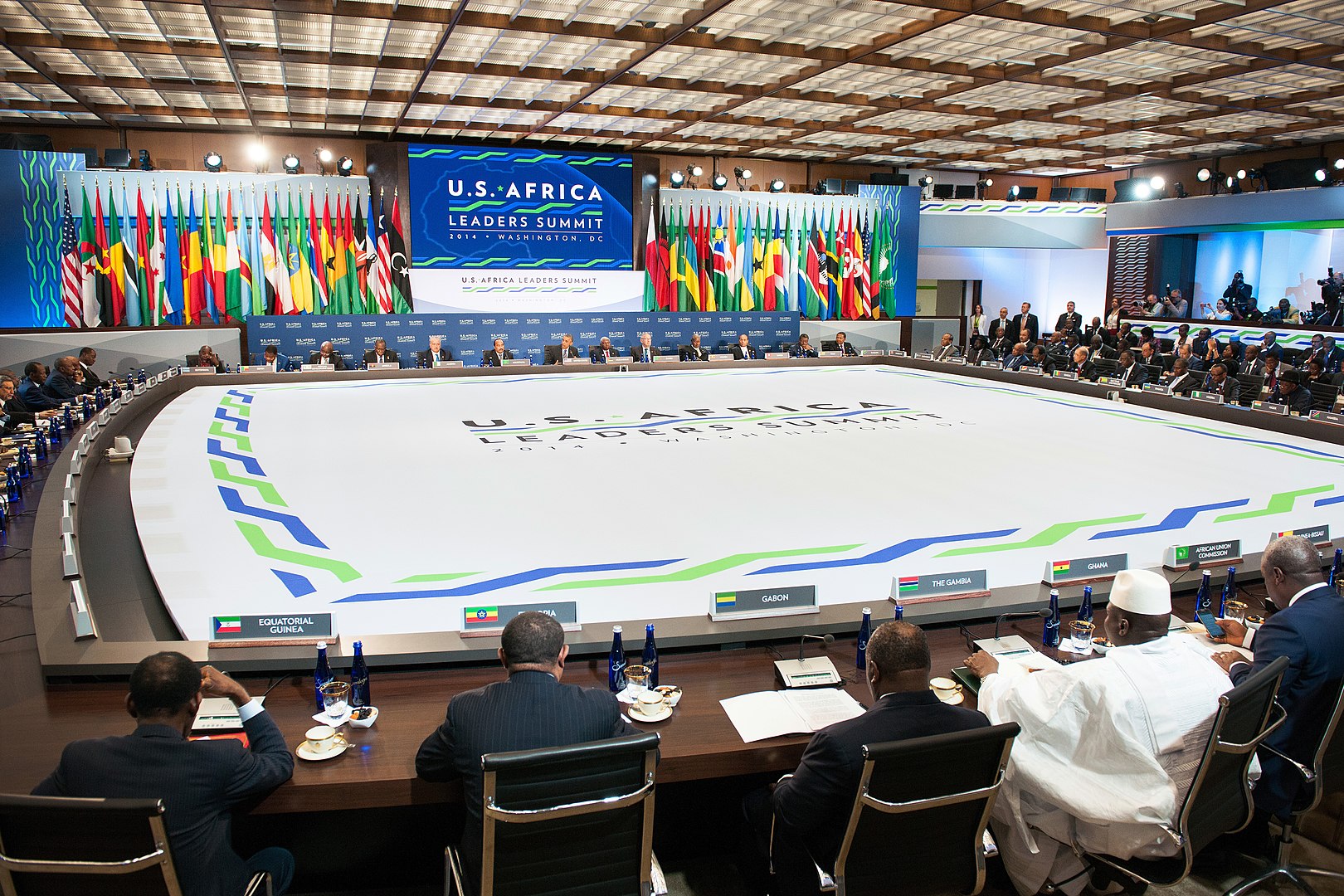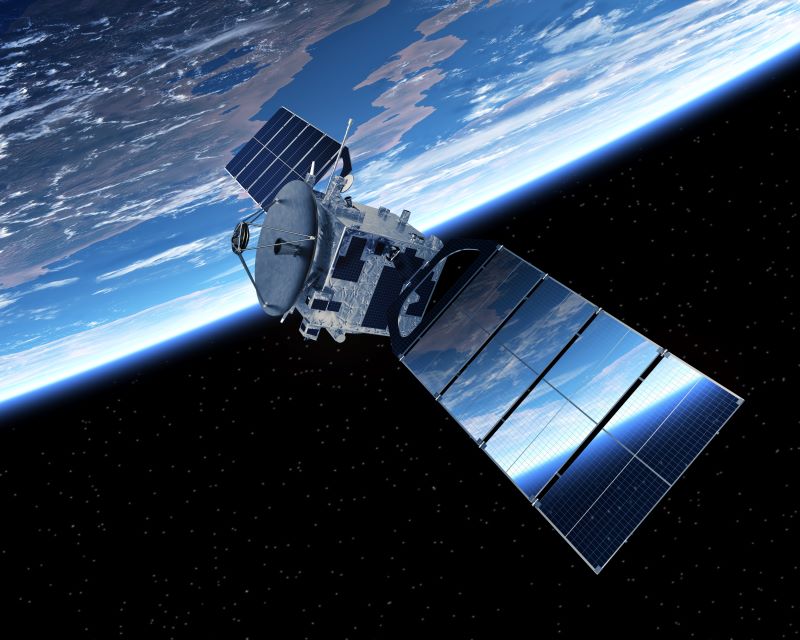Recommended
This blog is one in a series by experts across the Center for Global Development ahead of the 2022 US-Africa Leaders Summit. These posts aim to re-examine US-Africa policy and put forward recommendations to deliver on a more resilient, deeper, and mutually beneficial partnership between the United States and the nations of Africa.
Space is officially on the agenda for the upcoming US-Africa Leaders Summit in Washington, DC. But what does that mean—and what could it mean given appropriate ambition on the part of policymakers?
Looking for near-term, pragmatic options, US-Africa space cooperation should be thought of as building another type of infrastructure, like roads or power. But at present the definition and boundaries of “space”-related cooperation are hampered by the non-specificity of the term and are contaminated (or inspired?) by science fiction, thus leaving most policymakers groping for a shared vision of what this cooperation could look like or achieve.
To clarify, “space,” in this context, includes launching and operating satellites and/or leveraging resulting applications like GPS, communications and remote sensing, and astronomy and like sciences. One can also consider emerging “in-space” activity, the business of mining the moon or asteroids, on-orbit “destinations” like space stations or fuel depots, and in-orbit refueling and maintenance activity yet to be truly realized.
But most urgently, space means access to and the use of satellites and related ground infrastructure, satellite applications, and human capital to enable common objectives—like sustainable development goals, peaceful use of space and space sustainability, security, and other common interests at the continental, regional and national level.
On the eve of the Summit, the leaders will need to take a more ambitious approach to US-Africa space cooperation, one that recognizes the promise of space-based technologies to benefit prosperity here on earth—for both US foreign policy and African governments’ development goals.
In fact, US and African nations could use space to further every one of the Summit’s declared “shared values”:
|
Summit Shared Value |
Space-related Cooperation Examples |
|---|---|
|
Foster new economic engagement |
|
|
Advance peace, security, and good governance |
|
|
Reinforce commitment to democracy, human rights, and civil society |
|
|
Work collaboratively to strengthen regional and global health security |
|
|
Promote food security |
|
|
Respond to the climate crisis |
|
|
Amplify diaspora ties |
|
Government, civil society, academic, and private sector tools and mechanisms for space cooperation are not so different from other forms of international research, trade, or cooperative action, except where fettered by trade restrictions on sensitive technology. Most immediately accessible space activity isn’t the stuff of Hollywood (or Nollywood) sci-fi movies. It’s extending communications infrastructure using existing satellites. It’s leveraging GPS and remote sensing data for transportation, utilities, and financial sectors, or for monitoring weather, borders, fisheries, forests, and mining sites, and a thousand other daily—even routine—“downstream” uses. Space cooperation could venture further forward into the “upstream” side of the space sector, to include knowledge development, materials, design and manufacture, components, software, associated ground equipment, operations, and launch facilities. As the global space economy diversifies and specializes, there’s no reason African countries couldn’t be a part of the global space value chain, to the enrichment of both Africa and the US.
“Space means access to and the use of satellites and related ground infrastructure, satellite applications, and human capital to enable common objectives.”
For both the US and African nations, it’s mainly a matter of opening the aperture of policy, diplomacy, development, and trade to include space capabilities and applications. At the summit, decisionmakers should adopt the following approaches:
-
Include “space” as a tool to achieve Earth-focused effects. Space capabilities enable better communication and provide useful, timely information that can tangibly advance US-African shared values. Policymakers should draw on these capabilities and applications to support African nations and help achieve the SDGs.
-
Elevate space capability and applications explicitly in “whole of government” efforts, like advancing the Blue Economy or uniting to combat climate change. For the US, this may require establishing a clear lead agency and point of contact to represent space cooperation in the interagency.
-
Close the knowledge gap for the diplomatic and policy workforce. Most people don’t have a lot of direct experience with space capabilities, existing dependencies, or the range of potential applications. Both US and African governments must bridge the gap between science, policy, commerce, and cooperation through internal education, updating guidance, and adapting existing tools and mechanisms. Importantly this should include improved awareness of US and African intentions in space and support to the public good in space.
The fact that space will be a dedicated topic at the US-Africa Leaders Summit signals that the both the US and likely several African nations are taking potential space cooperation seriously. At the Summit leaders must build toward relationships with genuine reciprocity.
“At the Summit leaders must build toward relationships with genuine reciprocity”
The end-state of space cooperation should be one of mutual benefit, the space value chain flowing in both directions between the US and Africa. This will require recognizing the space sector is an emerging economic driver for all, and that investments in the “democratization of space” support space sustainability, two-way trade, and efficient use of limited “commons” resources like radio frequency and orbital slots.
Most importantly, the Summit represents an opportunity for Americans and Africans to focus on more than fundamental obstacles to space access. With an open mind and a touch of ambition, it can be a vehicle to begin building an exciting new component of the space sector—together.
Stay tuned for more analysis on the summit in the coming days, and sign up for our US development policy newsletter to get updates in your inbox.
Disclaimer
CGD blog posts reflect the views of the authors, drawing on prior research and experience in their areas of expertise. CGD is a nonpartisan, independent organization and does not take institutional positions.







